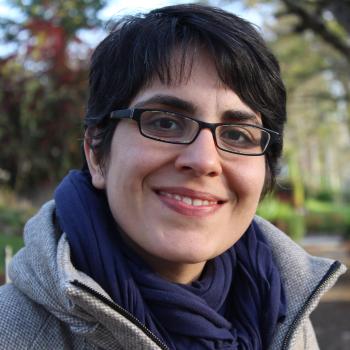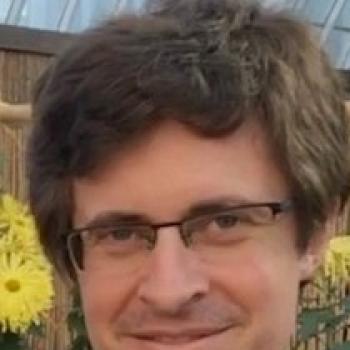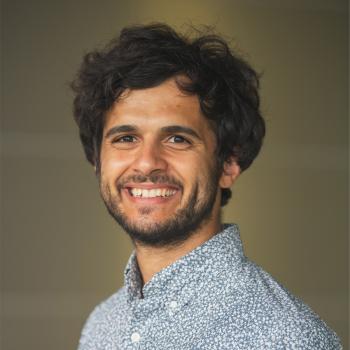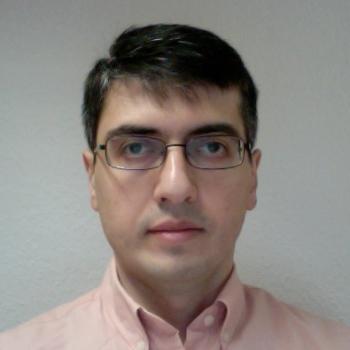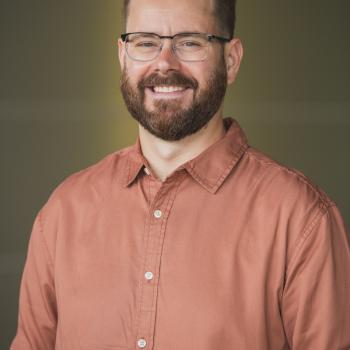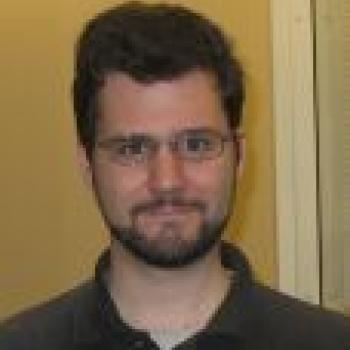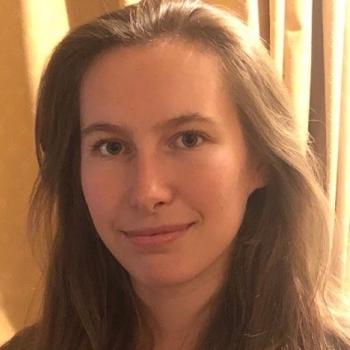EULER Center
The Penn State Math Department is committed to providing our undergrads with access to research experiences and mentorship.
Already a Penn State student? Visit the EULER Center to access tons of resources: EULER Center

There are so many benefits to participating in research early in your academic career, whether your plan is going to graduate school or going into industry---or even if you don't have a plan at all yet.
- Working on a problem when there's no solution to be found in the back of the book is an entirely different ballgame---you may not even know if there is a solution! Having confidence and ability in such a setting is an amazing skill that you can cultivate in a research environment, and take with you anywhere.
- Learning how to make connections and to collaborate with others in a productive way is invaluable. Being able to work in a group is a skill that needs practice, and that's something that you'd do with your faculty mentor and other students.
- Collaboration is important but it's only part of the picture. To bring something to the table, you'll learn to learn independently. That's not an easy thing to do, but in a research setting you'll get to start practicing as an undergrad.
- Having experience in research will give you a leg up in graduate school, at a job in a start-up, as an analyst, or in any kind of career. The world needs people that are not afraid to try to solve problems, ask & explore open questions, and figure out which are the important questions. Not everyone gets to experience this before they begin their post-college life, but if you can, that puts you way ahead of the game.
You can start by just dipping your toes in
- Join the Penn State Math Club & talk to your colleagues.
- The Eberly College of Science has undergrad research poster sessions every year. Attending them will help you get a feel for the research environment.
- Take our (new) course in Research Methods in Math.
- Connect with graduate students and think about working with them in a mentor-mentee relationship.
When you're ready to get serious
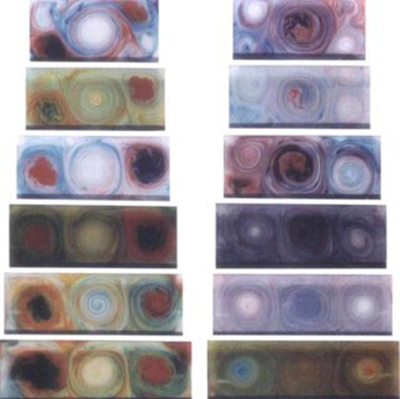
- Reach out to faculty about Independent Study courses. These are for learning about special topics in math that fall outside the standard curriculum which are supervised on an individual basis. Independent Study courses can (and often do) evolve into research projects.
- Talk to your professors about joining or sitting in on their research group meetings, or about working on a problem together. There are lots of active researchers in the Math Department and across the College waiting for you to reach out to them!
- The Math Department's EULER Center (Experiences for Undergrads in Learning, Education, and Research) has tons of resources to get you started including information about funding, summer research opportunities, internships, and career planning.
Research in Math -- the big picture
- Invent new mathematics and explore the consequences
- Try to understand properties of abstract mathematical objects
- Make conjectures and try to prove (or disprove) them
Abstract mathematical objects are things like vector spaces, groups, rings, fields, topological spaces, geometric objects in different dimensions, categories of differential equations, and so much more.
- Developing mathematical models & exploring their predictions
- Computation, simulation, & experimentation
Mathematical modeling can be used to help us understand things that are of interest in other disciplines including obvious ones like physics & engineering, computer science, statistics. But plenty of math modeling happens in chemistry & biology (think medical imaging, use of AI in diagnoses, pharmacology, environmental science, neuroscience), social sciences (like psychology and economics), and so many more things.
Faculty member profiles
Before moving to Penn State in January 2023, Shabnam Akhtari was a faculty member at University of Oregon for about 10 years, where she most enjoyed working on some research projects in number theory with some graduate and undergraduate students. She earned her doctoral degree at the University of British Columbia, in Canada and held postdoctoral fellowships in Bonn, Germany and Montreal, Canada.
“I’m a number theorist and enjoy using a variety of mathematical techniques and ideas from algebra, analysis, combinatorics and geometry to answer some classical problems in arithmetic. For example, the problem of finding or counting integer solutions to polynomial equations or proving that a certain equation cannot have any solutions by using theoretical methods.”
Suggested/necessary background:
- An upper-level class in algebra or number theory, like Math 435: Basic Abstract Algebra, Math 465: Number Theory, or Math 467: Factorization and Primality Testing.
- Some knowledge of analysis would also be helpful, like Math 312: Concepts of Real Analysis.
Jeffrey Case started at Penn State in fall 2015. Before that, he was a postdoc at Princeton University and got his doctoral degree at UC Santa Barbara.
“I am interested in geometric analysis and conformal geometry. In my research I use a range of techniques from analysis, algebra, and topology to try to find the “best” geometric structure on a given manifold. Please see this page for more information about undergraduate research projects I am offering and past projects I have supervised.”
Felipe Hernandez joined Penn State in 2025. Before that, he was a postdoc at MIT, and he completed his Ph.D. at Stanford in 2023.
“I work in mathematical physics, particularly on questions related to quantum mechanics and statistical mechanics. I am particularly interested in the question of how classical, irreversible physics emerges from the microscopic world of time-reversible quantum mechanics. This of course is a broad question which touches on many problems in mathematics and physics. There are a variety of problems motivated by this general question that are suitable for undergraduate research.”
Suggested/necessary background:
- Familiarity with roughly half of the following topics: probability theory, real analysis, ODEs/PDEs, and quantum mechanics.
- Programming and/or proof-writing experience.
Anna Mazzucato joined Penn State in 2003 after postdoctoral appointments at MSRI, IMA, and Yale University. She got her doctoral degree at UNC-Chapel Hill and holds a master’s degree in physics.
“I am interested in partial differential equations, fluids, elasticity, imaging and inverse problems, numerical methods. Please see my research group website for more information about student projects I supervised.”
Suggested/Necessary Prerequisites:
- Some basic knowledge of programming (C, Python, and/or MATLAB preferred)
- Math 230: Calculus & Vector Analysis
- A course or two in differential equations (Math 251: Ordinary and Partial Differential Equations or Math 411: Ordinary Differential Equations, Math 412: Fourier Series and Partial Differential Equations
- A course or two in scientific computing (Math 451: Numerical Computations, Math 455: Introduction to Numerical Analysis, or Math 456: Introduction to Numerical Analysis II)
Paul Milewski moved to Penn State in 2023. He is an applied mathematician who got his doctoral degree at MIT, was a postdoc at Stanford, and worked at UW-Madison and the University of Bath in the UK. He is currently the head of the Department of Mathematics.
“I'm interested in using mathematics to model physical (and sometimes biological) phenomena, mainly in problems related to waves and fluids. I also work on designing accurate and efficient computer simulations of these models.”
Suggested/necessary background:
- Knowledge of ODEs and preferably some knowledge of PDEs.
- Some programming experience in Python or MATLAB.
- Some knowledge of the application area you are interested in (for example, physics or biology).
Mihran Papikian joined Penn State in 2007. Before that, he was a postdoc at Stanford and got his doctoral degree from University of Michigan in 2003.
“I am interested in algebraic number theory, especially in the theory of Drinfeld modules and related topics.”
Suggested/necessary background:
- Math 435: Abstract Algebra or Math 436: Linear Algebra
Jan Reimann has been at Penn State for 14 years. Before that, he was a postdoc at UC Berkeley and got his doctoral degree in Germany at the University of Heidelberg in Computability and Fractal Dimension.
“I’m interested in Kolmogorov complexity and applications, and formalizing mathematics with the proof assistant Lean.”
Suggested/necessary background:
- Basic knowledge of Python, and experience with Git is a plus.
- For projects in Kolmogorov complexity, some background in computability or theoretical computer science would be helpful but not strictly required.
- For projects in Lean, experience in proof-based math is required (such as 311W: Concepts of Discrete Mathematics).
Nicholas Stepanik has experience in teaching undergraduate mathematics, physics, and educational psychology. He has graduate degrees in mathematics and educational psychology and is currently finishing his Ph.D. in Educational Psychology here at Penn State.
“My research interests reside in two main areas. The first is students’ mathematical understanding and use of multiple external representations to mediate and support their problem-solving. The second is in statistical applications to educational research and experiments. Both often coincide in my research.”
Suggested/necessary background:
- Basic knowledge of statistics, and of a statistics program such as SPSS, SAS, or R.
- Knowledge of calculus is helpful.
- For advanced study, more advanced statistical techniques are useful: regression (linear and multiple), ANOVA, MANOVA, moderation and mediation analysis.
Sergei Tabachnikov has been at Penn State for 24 years. Before that, he was a faculty member at the University of Arkansas, Fayetteville. He got his doctoral degree from Moscow University, USSR in 1987.
“I work on dynamical systems of geometrical nature, including mathematical billiards and billiard-like systems. In particular, I am interested in the symplectic aspects of such systems and their complete integrability, and I welcome experimental study of these problems. Also, I have interest in various problems of differential geometry and differential topology.”
Suggested/necessary background:
- Knowledge of calculus.
- A course in linear algebra (Math 220: Matrices or similar) and a course in differential equations.
- Experience in proof-based math is required (such as Math 311W: Concepts of Discrete Mathematics).
- Some familiarity with geometry would be helpful.
Matthew Willyard has been at Penn State for 13 years. Before that, he helped lead a Research Experience for Undergraduates program at Worcester Polytechnic Institute and got his doctoral degree from Florida State University in computational finance.
"I have worked on many applied mathematics problems from analyzing carbon nanotubes to pricing financial derivatives. My current focus is using numerical methods to study financial problems."
Suggested/necessary background:
- Basic knowledge of programming
- Math 448: Mathematics of Finance
- Math 312: Concepts of Real Analysis
Eve Vidalis recently defended her doctoral thesis on interactions between algebraic geometry, combinatorics, and representation theory at the University of Sheffield. Before that, she did her undergraduate degree and Part III mathematics at the University of Cambridge.
"I am interested in topics in both mathematics and mathematics education. On the math side, I am interested in partition combinatorics, geometric group theory, and Lie theory. On the math education side, I am interested in to what extent color can help students who struggle with cognitive overload doing algebraic manipulation."
Suggested/Necessary Prerequisites:
Students interested in projects in geometric group theory should have some background in analysis, in particular familiarity with metric spaces, or willingness to develop the same. Students interested in projects in Lie theory should have some background in abstract algebra.
